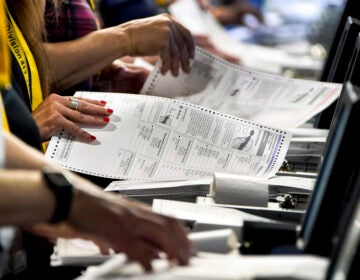Charters falter in Philly mostly because of a bad state law
ListenThe Philadelphia school system has received one of those Godfather-style “offers you can’t refuse.”
A private group called the Philadelphia School Partnership is dangling a $25 million gift before the school district. The money comes, of course, with a catch: To get it, the district must approve a surge of new charter schools around the city.
Why $25 million? Well, the PSP concedes – as every intellectually honest party with access to a calculator must – that the bizarre way Pennsylvania funds charters creates a financial penalty for the home district.
The details are messy. But the formula operates on the wacky assumption that every time a student leaves for a charter, his old school can trim costs equal to the state aid that travels with the student to the charter.
That does not work in the real world. When a student moves to a charter, the district loses a chunk of state aid that doesn’t get offset by savings. Why? Because, when a class shrinks from 35 to 34 students, no has yet figured out how to lay off 1/35th of a teacher. When a couple of kids leave a school, the building still needs to be heated, the office staffed and the buses run.
(Another problem, one that was fixed by Harrisburg for a while until Tom Corbett un-fixed it: Even when a new charter student is moving from a Catholic or private school, not a public one, the home school district still gets docked to pay for the student. Real logical, huh?)
To its credit, PSP, while a big booster of charters, acknowledges that these fiscal hits to the home district are real.
But it assumes, in arriving at that $25 million figure, that these so-called “stranded costs” clock in at about $2,000 per student. The district says: No way, try more like $7,000 per student.
I don’t trust either number. But even if the real hit falls somewhere in the middle, the PSP offer could prove to be a Trojan horse luring the district to fiscal ruin.
Meanwhile, the godfather in Harrisburg, Speaker of the House Mike Turzai, has told Philly school officials essentially, “Accept this gift, or you are dead to me.”
And Turzai is one of the reasonable voices in Harrisburg on Philly school stuff.
The district is getting pummeled in multiple ways. From the other side of the street, progressive advocates and unionized teachers in Philly mostly chant: “Don’t take this evil money; charters are the devil’s work.”
Ironically, about the only people with a balanced, factual, open attitude about charters are the ones everyone is threatening – the admirable team currently running the Philly schools.
They see charters as one useful tool to accelerate school progress and enhance parental options, but they don’t want to indulge the existence of lousy charters just to make an ideological point.
All of this controversy is so unnecessary. Charters need not be so divisive. So much of the anger flows out of the state’s bad charter law, which is flawed by several delusions.
The first is that you can fix urban education by spending less money. Can’t be done. But, as noted above, rather than upping state investment in education to support the planting of charters, the law is mired in magical thinking about cost savings.
The second is that a charter becomes a success merely by existing. This leads to the lack of oversight that seems to have allowed one corrupt or incompetent charter to crop up for every inspiring one that flourishes. (And, just to be clear, plenty of charters around the city do inspire: the Mastery and KIPP groups, and the MaST charter in the Northeast, to cite a few.)
This noisy mess is sad, maddening and pointless.
Charters aren’t intrinsically antithetical to progressive school reform. Nor are they are a magic bullet. They need to be managed, evaluated and judged just like any other experiment.
The charter law can and should be fixed. It’s not really that hard conceptually, if you’re willing to spend a little money.
All that stands in the way are stubborn delusions and a 20-year stack of grievances.
WHYY is your source for fact-based, in-depth journalism and information. As a nonprofit organization, we rely on financial support from readers like you. Please give today.




